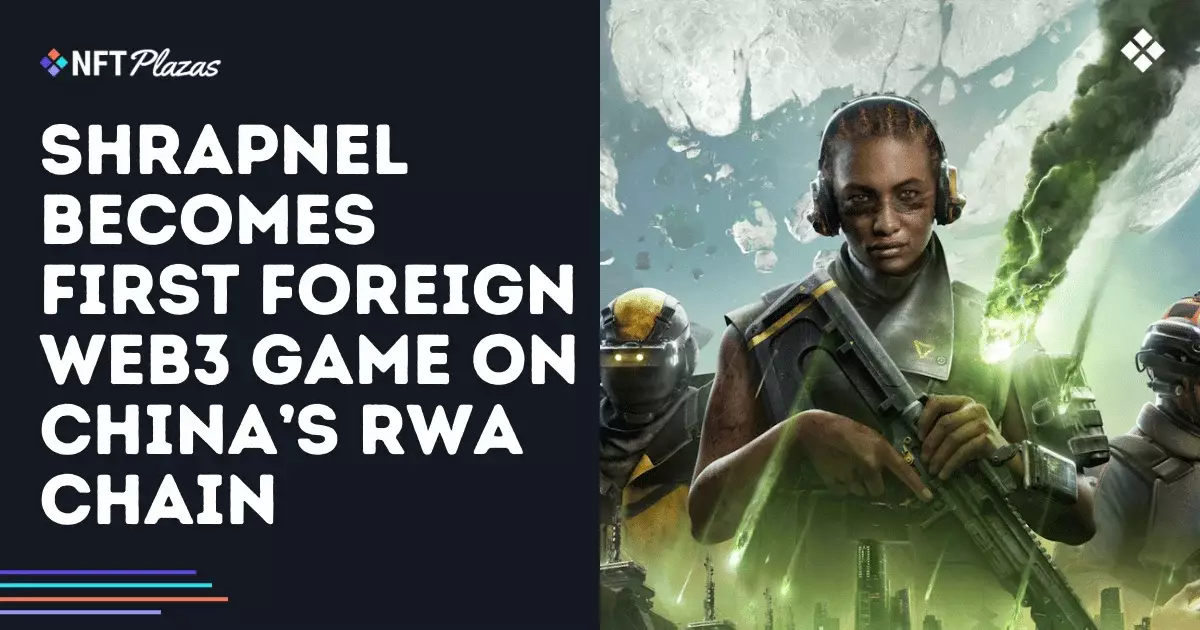In an environment where competition within the blockchain gaming sector is heating up, Immutable’s Perpetual Rewards program offers players an enticing incentive to engage. With a prize pool exceeding $93,000 in 235,758.46 $IMX tokens, this rollout gives the impression of a generous gesture towards its community. However, let’s critically assess what this so-called communal benefit really entails. While the initiative aims to encourage participation in games like Guild of Guardians and Illuvium, one cannot overlook that this is primarily a strategic move aimed at bolstering player engagement and, consequently, revenue generation for Immutable itself.
The Mechanics of Gamification: A Double-Edged Sword
The introduction of a system where players can exchange in-game currency (Gems) for access to weekly draws removes the old model of passive rewards and replaces it with an active pursuit of prizes. While this could be a couple of steps forward for player engagement—potentially increasing the time spent on games—it also raises questions on the viability of such a strategy in the long term. The notion of using Gems as currency in a competitive rewards system can create an unhealthy drive among players. Competition for scarce rewards, especially when heavily layered with tier designs—from Common to Mythic—can foster a toxic environment where casual gamers might feel overshadowed by the more dedicated players who are willing to invest more time and possibly money.
The Elitism of Tiers: Accessibility or Exclusion?
The tiered system is certainly intriguing and presents a fascinating modification to the traditional prize offering. However, what happens to the average player, who might not have the time or proclivity to ascend to higher tiers? In many ways, these tiers can be reminiscent of social stratification, reminiscent of a system where only those who can dedicate significant resources—be it time or in-game currency—reap the lucrative benefits. For a reward system to succeed in a community-driven space, it should ideally promote inclusivity, not exclusivity. Immutable must tread carefully to avoid creating an environment where participation is dictated by ‘who can afford to compete.’
A New Era of Consumer Expectation
Immutable’s approach is not just about games; it’s fundamentally crafting a new expectation in the crypto and gaming landscape. As enthusiasts of blockchain technology and gaming intersect, projects that offer substantial rewards will likely serve as a baseline for success in the eyes of consumers. However, we are on the verge of a troubling trend where players might start to expect rewards simply for playing. If such expectations are not managed effectively, the gaming experience could devolve into obligatory behavior rather than genuine enjoyment.
True Community Engagement or Just Market Monopoly?
The overarching concern that arises from Immutable’s strategy is whether this is genuinely about community engagement or a shrewd maneuver towards monopolizing the market. By luring players with the prospect of shared rewards, Immutable may be quietly consolidating its hold on a burgeoning industry. Are these rewards merely an attempt to keep players tethered to their ecosystem while simultaneously advocating for a monopolistic approach to game engagement? With the vast amount spent on marketing initiatives disguised as community engagement, it is essential to question whether Immutable is prioritizing its interests over creating a truly cooperative environment that benefits players and developers alike.
Future Implications for Blockchain Gaming
As the gaming world continues to embrace blockchain technology, Immutable’s Perpetual Rewards program serves as a compelling case study—both a beacon of innovation and a warning label, compelling developers to reflect deeply on their player engagement techniques. The critical take here is clear: while offering financial incentives can indeed serve to attract and hold players, the underlying motivations, implications of game design, and emotional ramifications of competition must be reconsidered. Each step taken in this direction should be done with acute awareness of the impact on player experience, their community, and the overall sustainability of the gaming ecosystem in this digital age.

